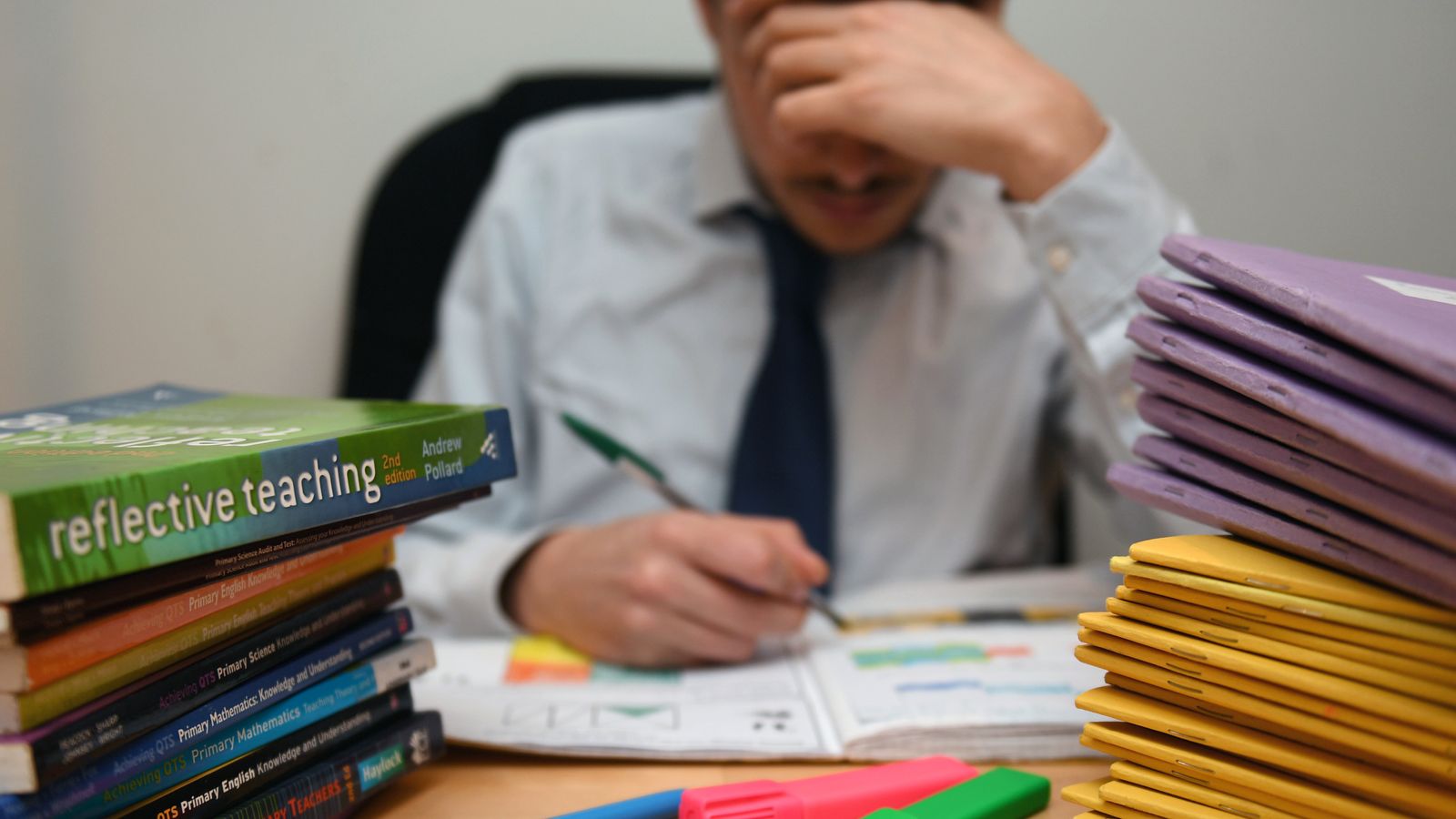Almost nine in 10 teachers believe their job has adversely affected their mental health in the past 12 months, according to a survey.
Nearly a quarter of teachers had used alcohol in an effort to cope, while 12% have used antidepressants, the poll of 11,574 NASUWT teaching union members found.
Some 3% said the stresses of their work had driven them to self-harm.
One of the teachers who responded to the survey said they vomited before work and had cried at school due to “badly behaved students” who left them unable to teach a class.
Another said: “My energy levels have never been this low before.
“I have never felt so anxious and have very little confidence in myself.
“I feel as though my bucket is full most of the time at work and that I maybe can’t deal with challenging pupils as well as I would normally.”
‘Transgender ideology is a cult’, sacked teacher tells employment tribunal
Teacher sacked for ‘refusing to use transgender student’s chosen pronouns’
UCL lecturer warns academic freedom at risk as module removed after student complaints
The teaching union warned of a “rise in suicide, suicide attempts and suicidal thoughts” within the profession, with a motion on the topic to be debated at its national conference this weekend.
The motion calls for suicide prevention training for school leaders, and fully-funded mandatory mental health training in schools and colleges.
Read more:
Trainee teachers to be offered fee-free apprenticeship degrees
Govt aims to cut teacher workloads by five hours a week with new taskforce
AI increasingly used by students to do their school work and many teachers can’t tell
Patrick Roach, general secretary of the NASUWT, said: “Nobody should be brought to the brink of ending their own life because of their job.
“We need a two-pronged approach to addressing the epidemic of mental ill health among the teaching profession, which both tackles the factors driving work-related stress, while also putting in place greater support systems for teachers and school leaders.”
He also said teachers need better welfare support, adding: “The status quo is not an option.
“Too many teachers are having their health destroyed and others are leaving the profession in a bid to save their sanity.
“There is no intrinsic reason why teaching should have such high levels of burnout. Things can and should be different and we need the next government to work with us to restore teaching to a profession where teachers can thrive, not just struggle to survive.”
Keep up with all the latest news from the UK and around the world by following Sky News
It comes after the suicide of headteacher Ruth Perry, who killed herself after an Ofsted report downgraded her school – Caversham Primary in Reading – from its highest rating to its lowest over safeguarding concerns.
A Department for Education spokesperson said: “We recognise the extraordinary work that headteachers, teachers and other staff in schools provide, and we take their wellbeing very seriously.
“Our Education Staff Wellbeing Charter ensures that staff wellbeing policy is integrated within schools’ culture alongside the expansion of our £2m investment to provide professional supervision and counselling to school and college leaders.”
Anyone feeling emotionally distressed or suicidal can call Samaritans for help on 116 123 or email [email protected] in the UK. In the US, call the Samaritans branch in your area or 1 (800) 273-TALK









